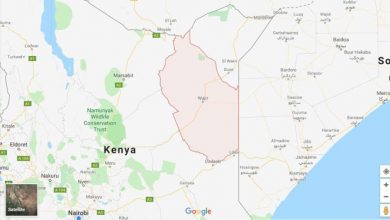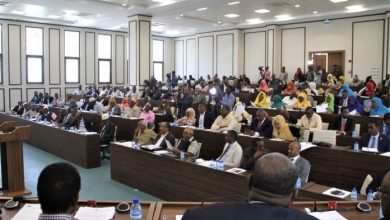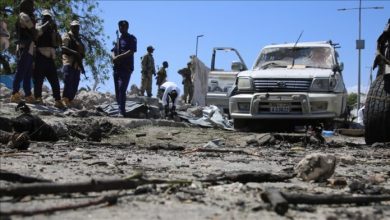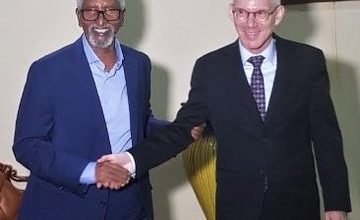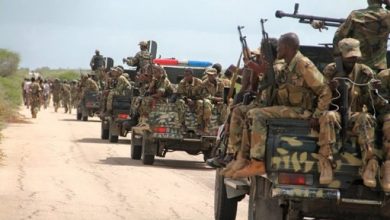Somali Petroleum should not be for sale due to political unrest in the country
The Parliament of the Federal Republic of Somalia enacts the petroleum law, taking into account the economic development and promoting investment in the country's natural resources. Pursuant to Articles 7(1), 44, [63(b), 69(1) (a)] and 79[(1) (d)] of the Constitution, the Petroleum Law is applicable throughout the Federal Republic of Somalia and its territories both offshore and onshore.
The Parliament of the Federal Republic of Somalia enacts the petroleum law, taking into account the economic development and promoting investment in the country’s natural resources. Pursuant to Articles 7(1), 44, [63(b), 69(1) (a)] and 79[(1) (d)] of the Constitution, the Petroleum Law is applicable throughout the Federal Republic of Somalia and its territories both offshore and onshore.
Somalia Petroleum Law, article 4 approves that: “The Petroleum is a national asset which belongs to all the people of Somalia and shall be vested in the Federal Republic of Somalia and the Federal Member States, in trust for the people of Somalia”.
Also, article 6 of the petroleum law approves that sharing of petroleum income as “petroleum income will be shared between the Federal State and the Regional Federal Member States in accordance with the “Agreement on Ownership, Management and Sharing of the Country’s Natural Resource (petroleum and Minerals), in light of Article 44 of the Federal Provisional Constitution”.
Therefore according to the law, Somalia’s hydrocarbons cannot be negotiated for sale at the moment due to the following: Somalia is currently going through a political crisis as they are in a middle of choosing PM (Central Government). Capital invested in this period can be at risk. For instance, International Oil Companies (IOCs) that previously invested in Somalia before this current government had their agreement voided due to government changes, and reference to the legitimacy of their contracts. This gave Somalia quite a corrupt reputation, IOCs making decisions to invest in hydrocarbon exploration and production projects in Somalia from August 2020 must put on hold, due to the high-risk of the uncertainty that elections bring and the current political situations in Somalia’s. The risk has doubled, Somalia is in political crisis.
Article 6 of the petroleum law states that sharing of petroleum income as “petroleum income will be shared between the Federal State and the Regional Federal Member States in accordance with the “Agreement on Ownership, Management and Sharing of the Country’s Natural Resource (petroleum and Minerals), in light of Article 44 of the Federal Provisional Constitution”.
The Law includes a Model Production Sharing Agreement (PSA) that has been deliberated in the initial hearing by the Federal Parliament and approved by the Council of Ministers. In addition, the Law is annexed with the Regulation of the Somali Petroleum Authority, Health and Safety Regulation and an Environmental Regulation, however, this law can only be activated once all FMS are on board.
Clearly, FGS has violated all the above-named articles, the simple reason is that Puntland is not part of this chosen SPAs, (which makes it illegal to process it), how can we hold licensing around known this? Also, according to Article 6 of Petroleum Law, FMS must all take a part of all activities of oil and gas, which they are not due to the political unrest in the country. If one of the FMS is no longer part of the petroleum process then the Baidoa agreement is no longer on the table, meaning there is no Agreement on Ownership, Management and Sharing of the Country’s Natural Resource, knowing that some of the key stakeholders are not part of it. Furthermore, Somalia Production Sharing Agreement (PSA) is not complete yet, there are huge debates about whether or not the R-factor (90% to the contractor after production reaches 1.0) serves the interest of the Somali people. Looks as the sole purpose of auctioning the resourcing is for quick gains, like the signature bonus.
Petroleum development framework and state control should have the following in place before dealing with investors:
1. Successful petroleum regulatory framework
2. Policy
3. Governance regulatory bodies
4. Governance structure and institutional
5. SOC and role in petroleum development
6. Access to LCS or PSC
7. Field development and planning
8. Regulation of petroleum: health, safety and environment
9. Social and community consideration
10. Development of local industries (Local content provision)
11. Taxation and Royalties
12. Sovereign Wealth Fund for future generations
13. Investment in internal development
Marian Harbi holds an LLM in Oil & Gas Law and a BSc (Hons) in Oil and Gas Management. Her work focuses on Upstream & Midstream policies: Crude, LNG, trade, Shipping & Geopolitics.
She can be contacted via email: marianharbi1@gmail.com
